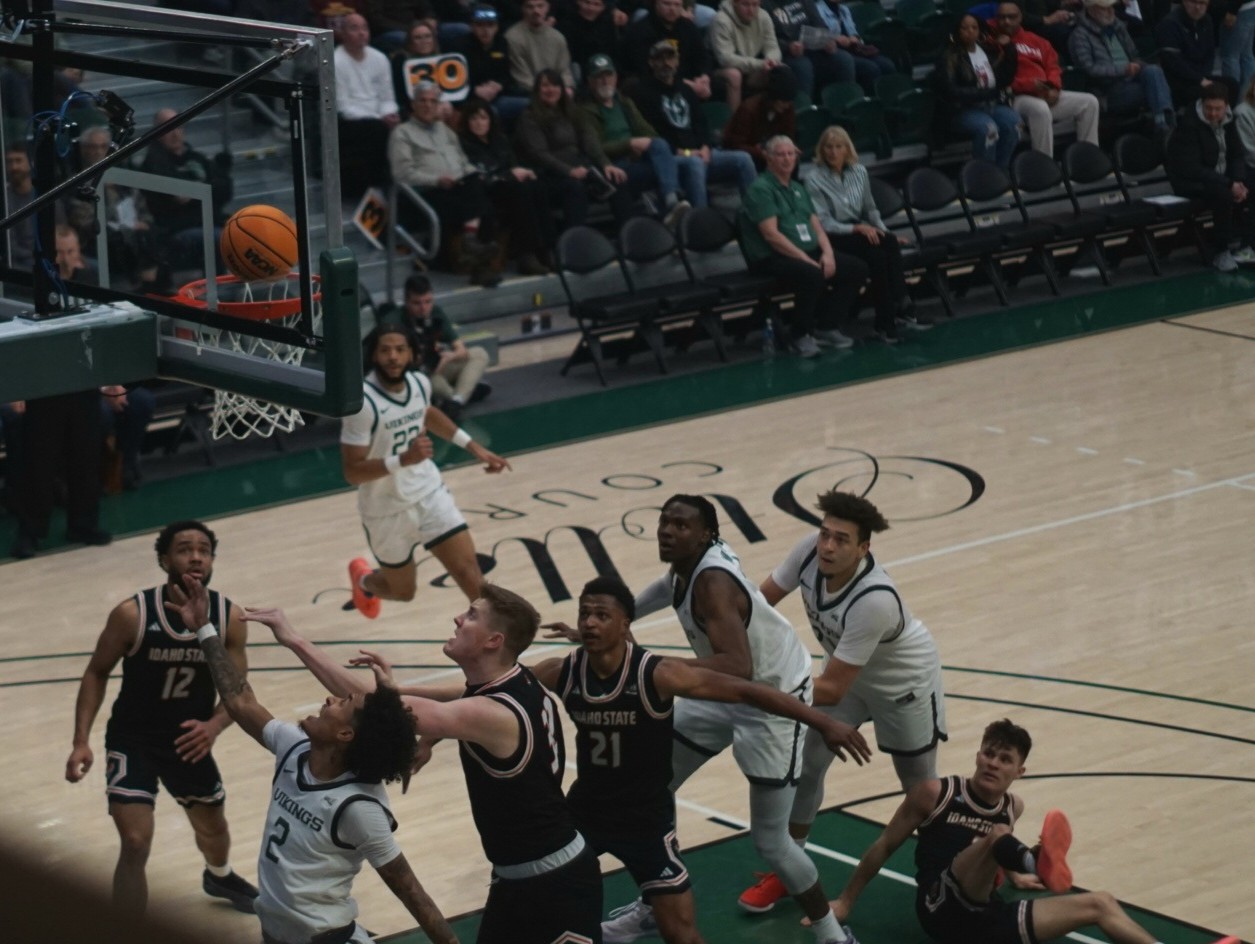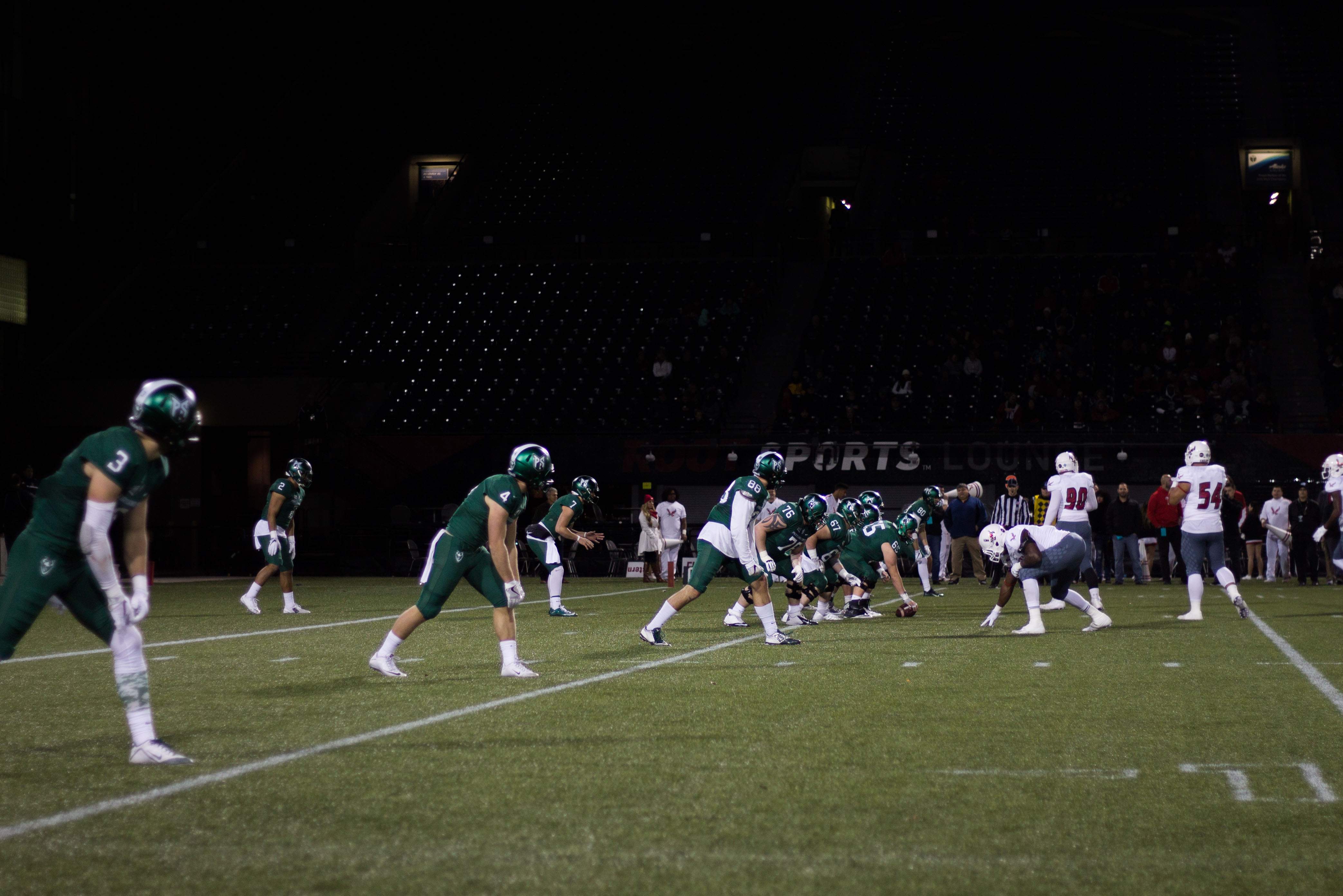Why do we love sports so much? What makes competition—and spectating competition—such an inherently desirable activity for so many people?
The 2016 Summer Olympics in Rio de Janeiro reportedly brought in 3.6 billion viewers worldwide, and more than 102 million people watched Super Bowl LIV this year. What keeps so many millions of people investing so many billions of dollars to watch a bunch of athletic anomalies run around and play a game? And why play the game to begin with?
To be honest, I may be a bit biased here. I love nearly everything about sports. I can discuss the pros and cons of running the triangle offense in today’s NBA with the same enthusiasm as an Instagram influencer trying to sell you their flat-tummy tea. The details are just as interesting to me as the game itself.
Chris Borland, a former NFL linebacker for the San Francisco 49ers described the “euphoric high” of landing a collision against an opponent in football: “Outside of sexual intercourse, there’s probably nothing like it.
For many athletes, it’s about the feeling they get from playing the game and being out there with their teammates. “Do you know what my favorite part of the game is?” asked former NFL coach and All-Pro linebacker Mike Singletary, “The opportunity to play.” For some, it’s just that: having the opportunity to continue doing what they love.
But what about the average sports fan? Those who never strapped on pads or stepped foot on the court but love watching just the same. There are reasons sports fanatics obsess the way they do.
Inspiration: Sports inspire us to be our best selves as we witness our favorite athletes achieving feats we can’t even comprehend. If Michael Jordan can drop 38 points on the Utah Jazz in game five of the 1997 NBA finals while playing with the flu, I can probably get up off the couch and take the garbage out to the curb.
Vicarious success: Sports allow us to share in the elation of another’s hard-won success.
They have the power to unite us toward a common goal: Sports can bring disparate people together in ways they would never otherwise interact.
According to research by sports psychology professor Daniel Wann, of Murray State University, identifying with a sports team can have legitimate benefits toward your mental health.
In an article referencing Wann’s research, Anna Almendrala stated, “epic fandom is also linked to higher levels of well-being and general happiness with one’s social life, as well as lower levels of loneliness and alienation.”
“For a lot of people, sports are a way to escape the world,” said sports fan Lincoln Tyler Ottersbach. “Not every day is great for people, so when a day, week, month, or even the whole year is going bad, watching a favorite team or just your favorite sport could cheer you up. Some days it doesn’t matter whether they win or lose honestly, just getting to spend an hour or so watching them can be a nice little escape for people.”
“The simple fact is that people are looking for ways to identify with something, to feel a sense of belonging-ness with a group of like-minded individuals,” Wann said.
For me, it was dressing up as “Boston Celtics Man” for superhero day in third grade. Was Celtics Man a legitimate, preexisting superhero recognized by the general public or anyone at school that day? Absolutely not. Did I feel pretty badass walking into class in my shiny green cape with a big Celtics “C” emblazoned across the back? You bet I did.
“Athletes are real-life superheroes,” said sports fan Justin Michael. “To men and women who are all essentially kids at heart, we look at these superhuman people in awe at the types of things they can do with their bodies that ordinary people can’t.”
To me, those Celtics players were superheroes, and representing them meant being a part of something bigger than myself, with an entire community of like-minded individuals behind me.
In the words of Nelson Mandela, “Sport has the power to change the world. It has the power to inspire, it has the power to unite people in a way that little else does. It speaks to youth in a language they understand. Sport can create hope, where once there was only despair. It is more powerful than governments in breaking down racial barriers. It laughs in the face of all types of discrimination.”
There’s no single reason why people love sports. There are an infinite number of reasons, and each is unique to the individual and their own experiences.
“I like sports for the same reason that Benjamin Sisko did in Star Trek Deep Space Nine,” sports fan Steven Haddock said. “No one knows the outcome of any part of the process prior to the start of it. Not only each game, but each play, is unpredictable.”
“I enjoy watching sports because I like to see those athletes pushing themselves to be the best at their sport,” sports enthusiast Dennis Hutchins said. “It’s the same reason I enjoy watching spelling bees, chess matches, or anything else where people are competing to be the best.”
Whatever your reason for loving sports, nearly everyone would acknowledge that it’s a whole lot bigger than just the game.







Great post. I love some of the things you have done here especially collecting people’s opinion on the topic. i have written a similar post myself.